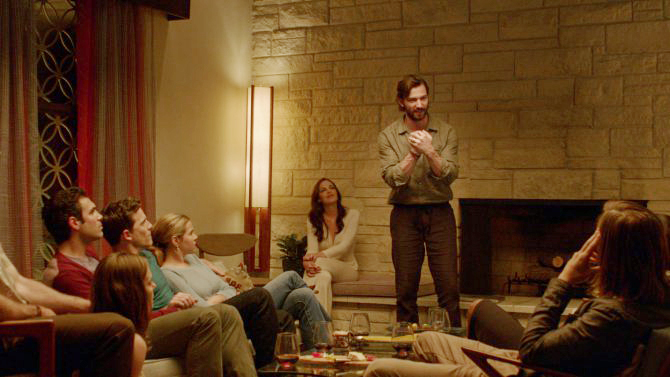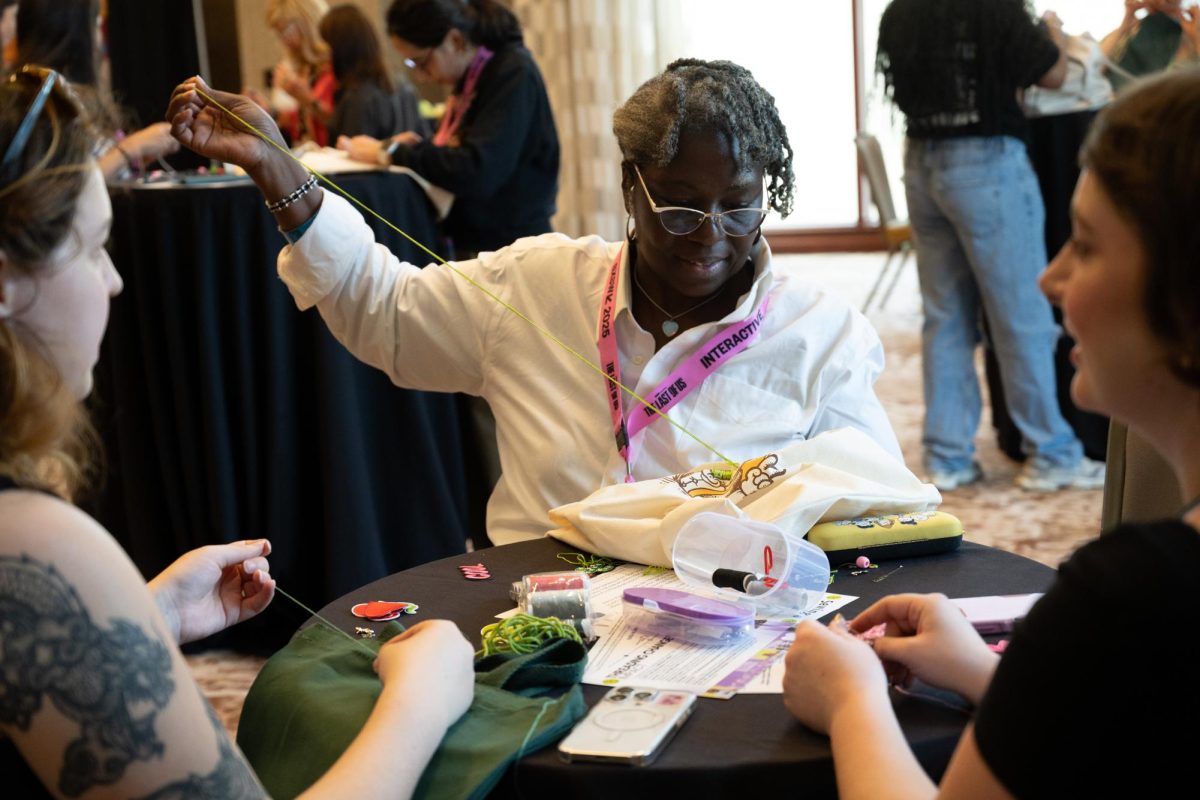Director Karyn Kusama’s thriller “The Invitation” begins like an ordinary, dinner-party centered film: Couples get together over wine and food to hash out the past with polite conversation, letting bygones be bygones.
And then the film takes a sharp turn into the weird and outrageous.
The slow-churning film opens with bearded 30-something Will (Logan Marshall-Green) and girlfriend Kira (Emayatzy Corinealdi) driving to a dinner party hosted by Will’s ex-wife Eden (Tammy Blanchard) and her new husband David (Michiel Huisman). Will perceives the scenario as peculiar from the start. Why did his ex-wife and her new husband suddenly invite him to a dinner party, nearly two years since their last contact?
From the get-go, Will appears detached from everything around him, driving without attention to the road. The camera work reflects this daze, lacking focus and moving in a drunken manner. Kira repeatedly assures him they don’t have to go. Something in Will suggests otherwise.
The moment Will and Kira arrive at the front door, Will is reminded of memories of living at the house. Through these re-occurring flashbacks, the viewer begins to piece together Will and Eden’s shared past. Something traumatic happened to the both of them, and each character has a different method of coping with this anguish. Blanchard and Marshall-Green do a thorough job of conveying the pent-up emotion shared between the two. Blanchard’s Eden walks around with a beaming smile, a façade that shields the pain within, while Marshall-Green’s Will constantly looks disturbed and distracted by events of the past — not attempting to make it appear as if he’s over what happened.
As the night progresses, the characters’ warm, dinner-party conversation suddenly careens into uncharted territory. David insists on showing his guests a video of a woman dying, adding to Will’s suspicions of his hosts. A strange friend of David’s named Pruitt (John Carroll Lynch) shares a story of how he accidentally killed his wife, hinting at his psychopathic tendencies. The conversations are often unpredictable, and they only grow in tension as the film progresses.
The paranoia Will feels is echoed in the way he remains distant from the main group. He chooses to sit alone while the others congregate in the living room, with spacious, wide camera shots conveying this sense of isolation. Time and time again, he disregards his hosts’ every attempt to be hospitable and friendly, seeming to be the only one who realizes something is off about the entire ordeal. He watches the other guests with amazement as they partake in a sexualized game of “I want” in which people take turns telling the others something or someone they lust after.
Will’s quick judgment of the hosts and guests’ every move creates an atmosphere so sour that the feeling of dread starts to become suffocating. The imagery crafted by cinematographer Bobby Shore is highlighted by a palate of oranges and yellows, reflecting the acidity in the air. Humor is nowhere to be found. In addition, the film’s screeching score leaves the viewer constantly cringing.
Unlike contemporary horror films that rely on cheap jump scares and quick thrills, “The Invitation” settles for slow-burning suspense. Although the deliberate pace gives the film its edginess, it does take the film well over an hour to get to any of its pulse-pounding sequences. By the time the first twist comes, it feels long overdue.
Regardless, the intense suspense generated by the unveiling of the past and the gruesome finale lead to a final, visually-striking shot that will stick with the viewer long after the credits roll.
The film begs the question: Who can be trusted?
- “The Invitation”
- Runtime: 100 minutes
- Rating: R
- Score: 4.5/5 stars















